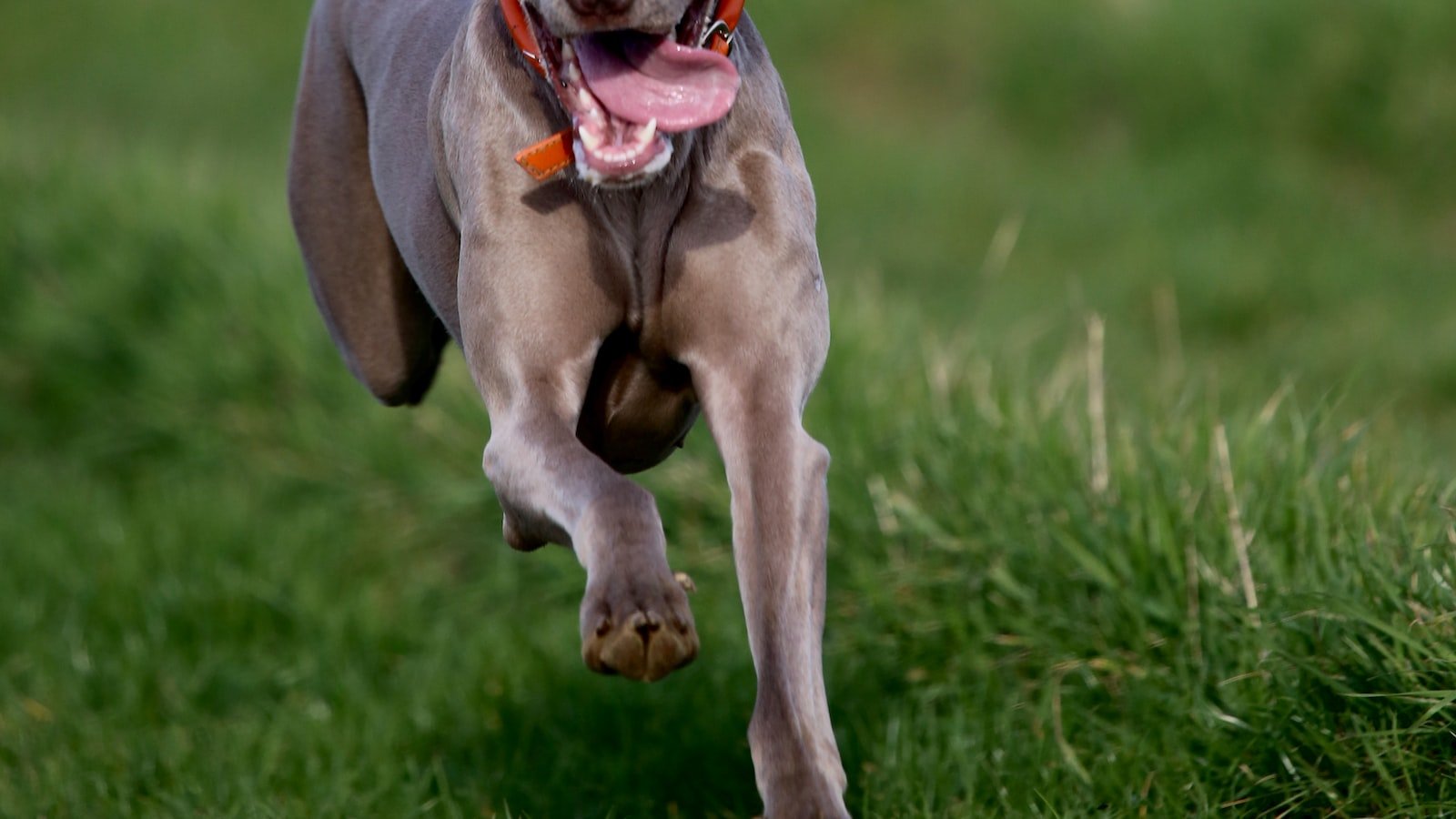From statuesque greyhounds racing across open fields to playful poodles gracefully maneuvering through an agility course, dogs have captivated our hearts and minds with their incredible abilities. Behind these mesmerizing displays of athleticism lies hours of dedicated training, a process that not only relies on the expertise of trainers but also on a hidden hero: electrolytes. Think of these minerals as the unsung champions fueling the performance and shaping the behavior of our beloved canines. In this article, we delve into the captivating world of dog training and explore the vital role that electrolytes play in optimizing their learning, conditioning, and overall well-being.
Table of Contents
- The Importance of Electrolytes in Canine Training
- Examining Electrolyte Imbalances and Behavior Patterns in Dogs
- Optimizing Electrolyte Balance to Enhance Canine Training Sessions
- Key Electrolyte Supplements and Intake Recommendations for Effective Dog Training
- Considering Electrolyte Replacement Strategies for Canine Athletes
- Q&A
- Concluding Remarks

The Importance of Electrolytes in Canine Training
In order to have a successful canine training session, it is crucial to understand the significance of electrolytes. Electrolytes play a key role in ensuring proper muscle function, nerve impulse transmission, and hydration levels in your furry friends. These essential minerals, such as sodium, potassium, and chloride, maintain the balance of ions in their bodies and regulate important bodily functions.
During training, dogs exert a significant amount of energy, causing them to sweat and lose electrolytes through their bodily fluids. This is especially true during intense physical activities or hot weather conditions. Without replenishing these electrolytes, dogs may experience muscle cramps, fatigue, decreased performance, and a higher risk of developing heat-related illnesses.
So, how can you make sure your canine companion gets the electrolyte support they need during training? Here are a few tips:
- Offer a balanced diet: Ensure your dog’s diet includes foods rich in natural electrolytes, such as bananas, coconut water, and lean meats.
- Provide access to fresh water: Hydration is key to maintaining electrolyte balance. Always have a clean water source available for your dog during and after training sessions.
- Consider electrolyte supplements: If your dog is engaged in strenuous activities, consult with your veterinarian about electrolyte supplements that can help replenish their levels.
- Monitor your dog’s behavior: Pay attention to signs of dehydration or fatigue during training. If you notice any concerning symptoms, take appropriate breaks and provide electrolyte-rich options to replenish their energy.
Remember, ensuring proper electrolyte balance not only enhances your dog’s performance during training sessions but also safeguards their overall health and well-being. By prioritizing electrolytes, you can help your furry companion become a happy and healthy training superstar!

Examining Electrolyte Imbalances and Behavior Patterns in Dogs
Dogs are known for their unpredictable behavior at times, but could electrolyte imbalances be a contributing factor to their mood swings? Understanding the correlation between electrolyte levels and behavior patterns in dogs is crucial for their overall well-being.
Electrolytes, such as sodium, potassium, chloride, and calcium, play a vital role in maintaining the balance of fluids within a dog’s body. An imbalance in these electrolytes can disrupt the normal functioning of cells, tissues, and organs, leading to noticeable changes in behavior.
Behavioral signs of electrolyte imbalances in dogs may include:
- Increased restlessness or hyperactivity
- Lethargy or decreased activity levels
- Changes in appetite or thirst
- Irritability or aggression
- Excessive panting or drooling
It is important for dog owners and veterinarians to recognize these behavioral clues as potential indicators of electrolyte imbalances. Seeking appropriate medical attention and diagnostic tests can help identify the root cause and guide effective treatment strategies.
Remember, a balanced electrolyte level is essential for a dog’s overall health and behavior. By closely monitoring their electrolyte levels and addressing any imbalances promptly, we can contribute to our furry friends’ well-being and ensure their happiness and vitality.

Optimizing Electrolyte Balance to Enhance Canine Training Sessions
Evidence suggests that optimizing electrolyte balance can have a significant impact on enhancing canine training sessions. Electrolytes, such as sodium, potassium, and calcium, play a crucial role in maintaining proper muscle function, nerve transmission, and hydration levels in dogs.
When it comes to training, electrolyte balance is key to ensuring that your canine companion performs at their best. Imbalances in these essential minerals can result in fatigue, muscle cramps, reduced focus, and even compromised cognitive function. To avoid these issues, it’s important to pay attention to your dog’s electrolyte levels.
To optimize electrolyte balance during training sessions, consider incorporating the following tips:
- Hydration is essential: Make sure your dog has access to clean, fresh water before, during, and after training. Dehydration can lead to electrolyte imbalances, so encourage regular water breaks.
- Choose electrolyte-rich snacks: Snacks that are high in electrolytes can help replenish these minerals during training. Some examples include bananas, coconut water, and watermelon.
- Consider electrolyte supplements: In consultation with your veterinarian, you may want to explore electrolyte supplements designed specifically for dogs. These can provide an extra boost of essential minerals in a convenient form.
- Monitor training duration and intensity: Excessive or intense training sessions can deplete electrolytes more quickly. Consider breaking up long sessions into smaller, more manageable segments and provide ample rest periods.
By paying attention to your dog’s electrolyte balance and taking steps to optimize it, you can enhance their training sessions and help them perform at their best. Remember to work closely with your veterinarian to develop a plan that is tailored to your dog’s specific needs.
Key Electrolyte Supplements and Intake Recommendations for Effective Dog Training
When it comes to ensuring your furry friend’s optimal performance during training sessions, providing the right electrolyte supplements is essential. Electrolytes are crucial for maintaining proper hydration, muscle function, and nerve signals in dogs. Here are some key electrolyte supplements and intake recommendations that can boost your dog’s training sessions:
1. Coconut Water:
Coconut water is a natural and refreshing electrolyte-rich drink that can assist in replenishing vital minerals lost through exercise and sweating. Its hydration properties are perfect for when your dog needs that extra energy during a training session. Make sure to serve it in moderation and avoid adding any additional sugars or additives.
2. Pedialyte:
Pedialyte is a well-known electrolyte solution recommended by veterinarians. Primarily designed for human use, this low-sugar, flavored beverage can benefit your dog during intense training sessions. However, always consult your veterinarian for proper dosage instructions and to ensure its suitability for your dog’s specific needs.
3. Freeze-Dried Electrolyte Treats:
For a handy and delicious electrolyte supplement option, try freeze-dried electrolyte treats. These bite-sized goodies are packed with essential electrolytes and can be easily incorporated into your dog’s training routine. Not only will they provide hydration support, but they also serve as a tasty reward for your pup’s hard work.
Remember, electrolyte supplements should not replace regular water intake and should only be used when necessary. It’s essential to follow dosage recommendations provided by your veterinarian and monitor your dog’s response. With the right electrolyte supplements, your canine companion will be ready for focused and successful training sessions.
Considering Electrolyte Replacement Strategies for Canine Athletes
When it comes to canine athletes, ensuring proper electrolyte balance is crucial for their performance and overall well-being. Electrolytes are essential minerals that help regulate various bodily functions, including muscle contraction and fluid balance. During intense physical activity, dogs lose electrolytes through sweat and increased urination, which can lead to dehydration and decreased performance.
Fortunately, there are several electrolyte replacement strategies that can help maintain optimal levels in canine athletes:
- Hydration is key: Adequate hydration is the foundation for maintaining electrolyte balance. Ensure your canine athlete has access to fresh water at all times, especially during and after exercise.
- Electrolyte-rich diet: Some commercial dog foods are formulated with electrolytes, but if your furry athlete requires additional electrolyte support, consult with a veterinarian for specialized diets or supplements.
- Sports drinks for dogs: Just like human athletes, dogs can benefit from sports drinks specifically designed for their needs. These drinks contain electrolytes such as sodium, potassium, and magnesium, which aid in rehydration.
- Electrolyte supplements: There are various electrolyte supplements available in the market that can be added to your dog’s water or food. These supplements provide a convenient way to replenish electrolytes during intense training or competitions.
Remember, each canine athlete’s electrolyte needs may differ, so it’s important to consult with a veterinarian to determine the most suitable electrolyte replacement strategy for your furry friend.
Q&A
What are electrolytes and their role in dog training?
Electrolytes are minerals that carry an electric charge and help balance fluids in the body. They play a crucial role in dog training by ensuring proper muscle function, nerve transmission, and hydration levels.
Why are electrolytes important for dogs during training sessions?
During training sessions, dogs exert themselves physically and mentally, leading to the loss of electrolytes through sweat and increased metabolic activity. Replenishing these electrolytes helps prevent muscle cramps, fatigue, and dehydration, allowing dogs to perform at their best.
Which electrolytes are essential for effective dog training?
The key electrolytes for dog training include sodium, potassium, calcium, and magnesium. Sodium and potassium aid in muscle contraction and nerve impulses, while calcium and magnesium assist in maintaining bone health and overall muscle function.
How can electrolytes be incorporated into a dog’s training routine?
Electrolytes can be provided through specially formulated supplements, electrolyte-enriched treats, or by adding electrolyte solutions to your dog’s water bowl. It’s recommended to consult with a veterinarian to determine the best method and dosage for your dog’s specific needs.
Are there any risks associated with electrolyte supplementation in dogs?
While electrolyte supplementation is generally safe, excessive amounts of certain electrolytes, such as sodium, can have adverse effects. It is crucial to follow the recommended dosages and consult with a veterinarian to avoid any potential risks or imbalances.
What are the signs of electrolyte imbalance in dogs during training?
Signs of electrolyte imbalance in dogs include muscle weakness, lethargy, increased panting, irregular heart rate, excessive thirst, and decreased appetite. If you notice these symptoms, it is important to consult with a veterinarian for proper evaluation and treatment.
Can a balanced diet provide sufficient electrolytes for a dog’s training needs?
A balanced diet can provide a significant amount of required electrolytes for the average dog’s training needs. However, for highly active or intensively trained dogs, additional electrolyte supplementation may be necessary to ensure optimal performance and recovery.
When is the best time to provide electrolytes to dogs during training?
Electrolytes should be provided to dogs before, during, and after training sessions. Pre-training electrolyte supplementation helps prepare their muscles, while frequent intake during and after training sessions aids in hydration and efficient muscle recovery.
Concluding Remarks
As we bring this informative journey to a close, we hope that you, dear reader, have gained a newfound appreciation for the mesmerizing world of electrolytes in dog training. From unraveling the enigmatic powers of these minuscule charged particles to witnessing their magnificent impact on our four-legged companions, we have traversed into uncharted territories of knowledge.
Now, armed with a deeper understanding, you possess the keys to unlocking a harmonious bond with your furry friends. Harnessing the potential of electrolytes, like masterful conductors guiding a symphony, you can orchestrate magnificent performances of training and communication.
So, let us stride forth with open hearts and enlightened minds, embracing the role of electrolytes as not just a scientific marvel but a catalyst for transformation. For within these chemical wonders lie the threads that weave trust, strengthen connections, and forge unbreakable bonds with our four-legged companions.
As you venture into the realm of dog training, remember that the power of electrolytes is but one piece of the puzzle. Approach your training endeavors with patience, kindness, and an unwavering commitment to understanding your furry friend’s unique needs and quirks.
May this newfound knowledge illuminate your path, leading you to a world where gestures are understood in the language of electrolytes, and where training becomes a dance between souls. Embrace the infinite possibilities that lie ahead, and embark on this journey with an open mind and a curious spirit.
In our world, where dogs become more than mere pets, the role of electrolytes transcends the scientific realm. It becomes a riveting tale of connection, trust, and unconditional love—a narrative where they enrich our lives just as much as we do theirs.
As we bid adieu, may the harmonious rhythm of electrolytes echo through the paths you choose, forever intertwining your destinies and igniting a symphony of understanding between you and your four-legged companion.
As an affiliate, my content may feature links to products I personally use and recommend. By taking action, like subscribing or making a purchase, you’ll be supporting my work and fueling my taco cravings at the same time. Win-win, right?
Want to read more? Check out our Affiliate Disclosure page.